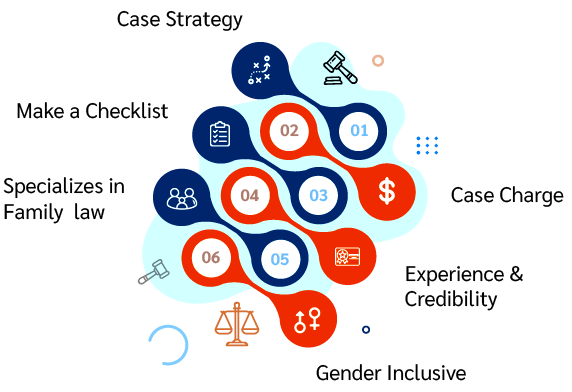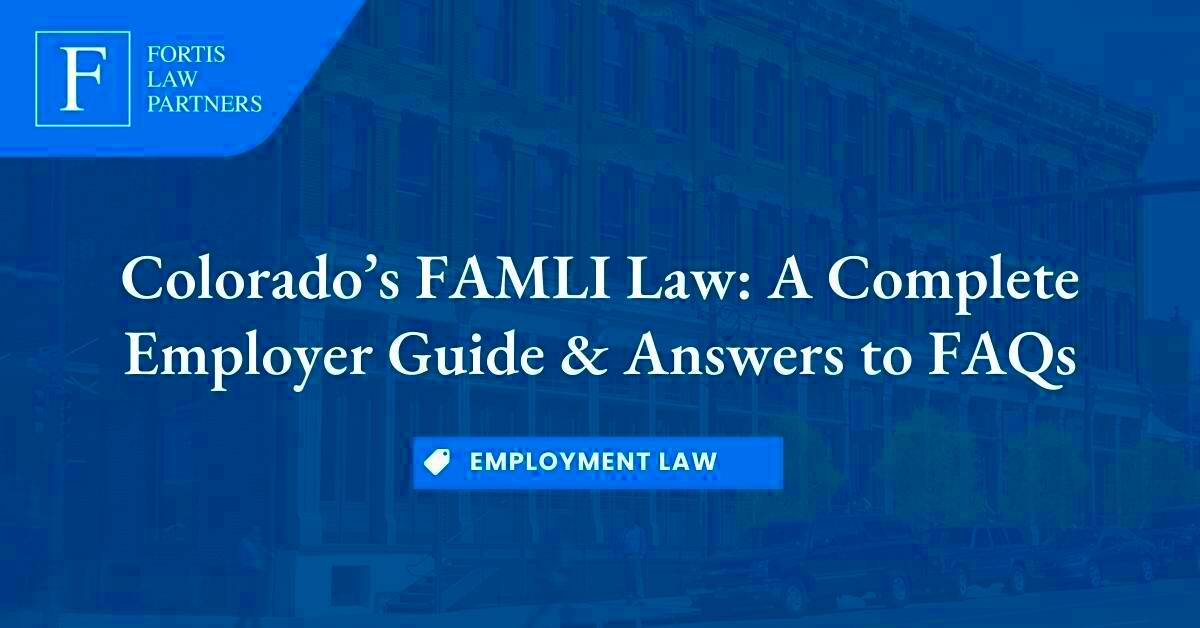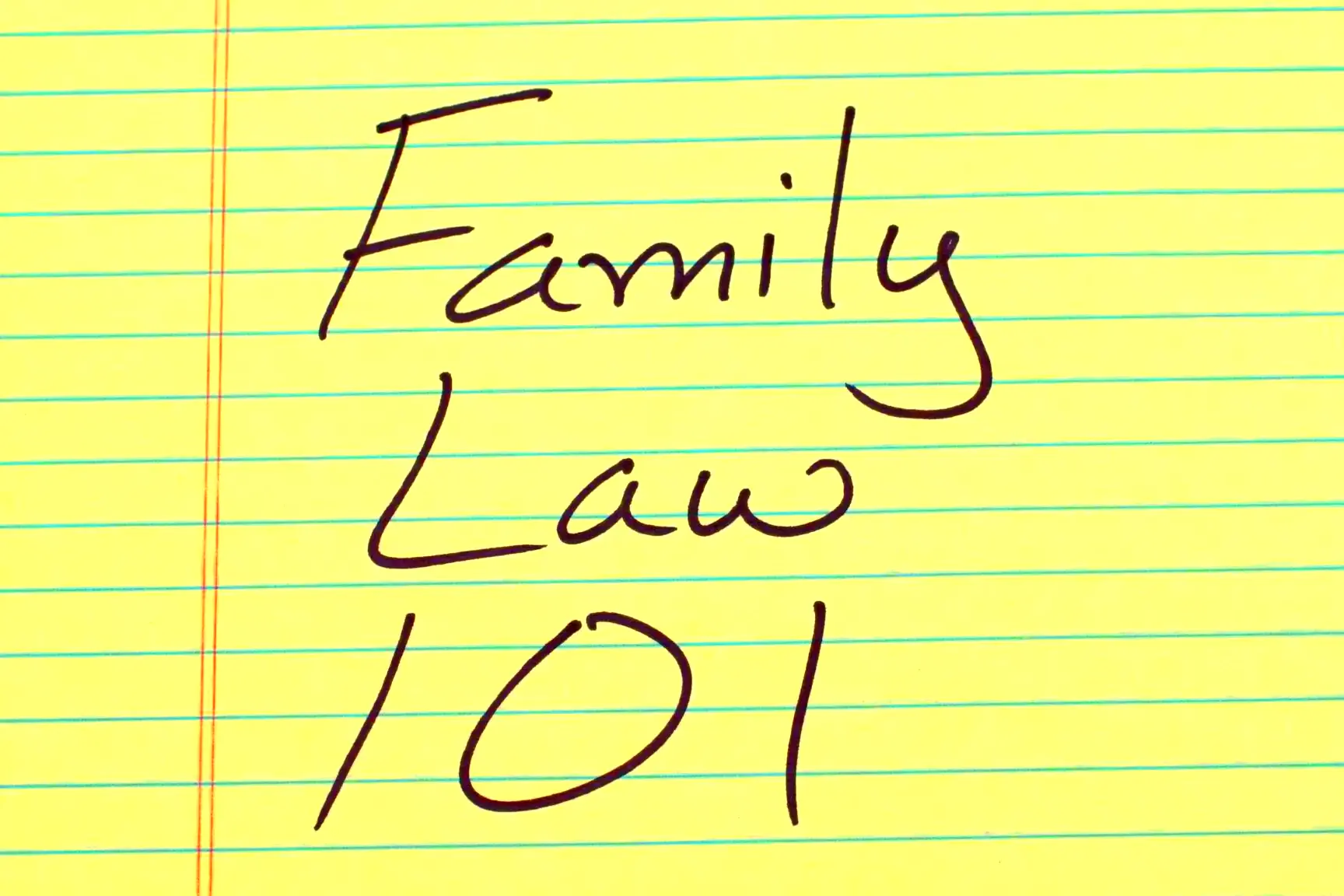Colorado Family Law Explained
Dealing with family law in Colorado can be quite challenging, especially if you’re going through it for the first time. I understand firsthand how the complexities of the legal system can be intimidating. However grasping the fundamentals can significantly impact how you approach these situations. Family law in Colorado encompasses a wide range of issues such as divorce, child custody, child support and property division. Each area is tailored to address concerns and ensure fairness for everyone involved.
Key Aspects of Divorce in Colorado

Going through a divorce is never a walk in the park and it can feel like you’re drowning in a flood of forms and complex legal language. In Colorado the journey begins by submitting a request for divorce, referred to as a “Dissolution of Marriage” in legal circles. The state operates on an “distribution” approach meaning that assets and liabilities are divided in a way but not always equally.
Here are some key elements to consider:
- Residency Requirements: At least one spouse must have been a Colorado resident for at least 91 days before filing for divorce.
- Grounds for Divorce: Colorado is a no-fault state, meaning you don’t need to prove wrongdoing. The most common ground is “irretrievably broken” marriage.
- Property Division: Marital property and debts are divided in a way that’s deemed fair, not necessarily equal. This can include assets like homes, cars, and retirement accounts.
- Spousal Maintenance: Sometimes, one spouse may be required to provide financial support to the other for a period of time.
Navigating the legal system can be challenging but with a skilled lawyer and a clear understanding of your rights it becomes more manageable. Personally I found that having a well informed advocate by my side alleviated the pressure and uncertainty that often comes with such situations.
Child Custody and Parenting Time Explained

When it comes to kids the stakes get raised. In Colorado courts focus on what’s best for the child when making custody decisions. This part of family law can be quite emotional and I’ve witnessed it personally in numerous cases. Custody in Colorado is typically split into two main types, legal custody and physical custody.
Legal Custody: This refers to the right to make important decisions about your child’s life, including education, health care, and religious upbringing. It can be shared or sole.
Physical Custody: This pertains to where the child lives and the day-to-day care. It can also be shared or sole, and includes parenting time or visitation schedules.
Here’s a quick summary of how custody and visitation arrangements are decided.
- Best Interests of the Child: Factors include the child’s emotional needs, the relationship with each parent, and each parent’s ability to provide for the child’s needs.
- Parenting Plans: Parents are encouraged to create a parenting plan that outlines custody arrangements and schedules. This plan can be modified if circumstances change.
- Visitation Rights: Non-custodial parents typically have visitation rights, which are structured to ensure ongoing contact with the child.
Every situation is different and what may be effective for one family may not be suitable for another. In my view prioritizing the child’s welfare and keeping lines of communication open with your co parent can greatly impact the success of achieving a favorable result.
Child Support Guidelines in Colorado

Child support can be a topic in a divorce often bringing up strong feelings. Based on my experience knowing the guidelines can ease some of the worries related to this matter. In Colorado there are rules in place to determine child support to make sure that children get the financial assistance they require from both parents.
Child support is mainly calculated using a formula that takes into account the earnings of both parents, the number of children involved and various other relevant factors. Lets take a closer look at how child support is usually determined.
- Income of Both Parents: The formula takes into account the gross income of both parents. This includes wages, salaries, bonuses, and even some benefits.
- Child Support Worksheet: Colorado uses a standard worksheet to calculate support. It considers various factors including health insurance costs, child care expenses, and other needs.
- Adjustment for Parenting Time: The amount of time each parent spends with the child can affect the support amount. More parenting time may reduce the amount of support one parent needs to pay.
- Additional Considerations: Special needs of the child or extraordinary expenses might also be taken into account.
Having been in a situation, I get that finding the right support can be tricky. Teaming up with a skilled lawyer can make it easier to handle things and make sure your childs well being is prioritized.
Property Division During Divorce

Splitting up assets during a divorce can be a source of conflict. In Colorado the method used is to distribute property fairly instead of equally. This idea of “distribution” means that the division might not be exactly half and half but it strives to be just for both individuals involved.
Here are some key points to understand regarding the division of property.
- Marital vs. Separate Property: Marital property includes assets acquired during the marriage, while separate property is what each spouse owned before marriage or received as a gift or inheritance.
- Asset Valuation: Assets such as homes, cars, and retirement accounts need to be valued. Sometimes this requires professional appraisals.
- Debts: Debts incurred during the marriage are also divided. This includes mortgages, credit card debt, and loans.
- Negotiations and Settlements: Many couples reach agreements outside of court, which can simplify the process. However, if disagreements persist, the court will make the final decision.
I believe that approaching the division of assets with an emphasis on fairness and open dialogue can alleviate some of the emotional burden. While it may be a difficult journey having a solid grasp of your entitlements and collaborating with a competent attorney can significantly impact the outcome.
Legal Separation Versus Divorce
Choosing between separation and divorce is a decision that is often shaped by personal circumstances and values. In my experience witnessing numerous situations I have witnessed the varying effects this choice can have on families. Lets delve deeper into both alternatives.
Legal Separation: This allows couples to live apart while remaining legally married. It’s often chosen for religious reasons or when one spouse is not yet ready to finalize the divorce. Legal separation can address issues like property division and child support, but it does not legally end the marriage.
Divorce: A divorce legally ends the marriage, allowing both parties to remarry if they choose. It involves the division of assets and debts, child custody arrangements, and other legal considerations.
Here are some key differences:
- Legal Status: Divorce ends the marriage, while legal separation does not.
- Financial Implications: Both arrangements can address financial issues, but divorce might have more finality in property division.
- Health Insurance: In some cases, a legal separation might allow one spouse to remain on the other’s health insurance plan, whereas this is not possible after a divorce.
- Future Options: Divorce allows for complete separation, while legal separation keeps the option open for reconciliation.
Based on what I have seen the decision making process hinges on your objectives and the specific context you find yourself in. Seeking advice from a lawyer who is familiar with your individual circumstances can offer insights and help steer you towards making the choice that aligns best with your future aspirations.
Modifying Family Law Orders
Life can be full of surprises and there are times when the family law agreements you made need to be updated. Based on my own experiences I’ve come to realize how important it is to address changes in your circumstances whether they relate to child support, custody arrangements or spousal support. In Colorado there is a process for modifying family law orders that lets you request changes based on significant shifts in your situation.
Here’s a breakdown of what you should be aware of when it comes to changing family law orders.
- Significant Change in Circumstances: You must demonstrate that there has been a substantial change since the original order. This might include a change in income, a move to a new state, or changes in the child’s needs.
- Filing a Motion: To request a modification, you need to file a motion with the court. This involves providing evidence of the change and explaining why the modification is necessary.
- Negotiation and Mediation: Often, the court will encourage or require mediation to reach a mutually agreeable solution. This can be less adversarial and more flexible than a court trial.
- Legal Representation: Having an experienced family lawyer can greatly assist in presenting your case effectively and ensuring that the modifications are fair and legally sound.
I have witnessed how shifts in life situations can necessitate adjustments. This could involve revising child support in light of an unemployment or changing custody arrangements to align with the growing needs of a child. Taking the approach and collaborating with an attorney can greatly facilitate a seamless process.
Finding the Right Family Lawyer
Searching for a family lawyer can be overwhelming, but with the right assistance the experience can be much smoother. In my opinion an effective family lawyer is not a skilled professional but also a caring support system during difficult times. Here are a few suggestions to assist you in finding a family lawyer that suits your requirements.
- Experience and Expertise: Look for a lawyer who specializes in family law and has experience with cases similar to yours. Their expertise can make a significant difference in the outcome.
- Personal Compatibility: It’s important to feel comfortable with your lawyer. They should be someone you can talk to openly and trust with sensitive information.
- Reputation and Reviews: Check online reviews and ask for recommendations from friends or family. A lawyer with a solid reputation can provide peace of mind.
- Initial Consultation: Many lawyers offer a free initial consultation. Use this opportunity to discuss your case, understand their approach, and gauge how well you connect with them.
- Cost and Fees: Make sure you understand their fee structure and what services are included. Clear communication about costs can prevent surprises down the road.
Choosing the lawyer can make a significant difference in dealing with family legal matters. Having the right assistance can help you navigate these challenges more smoothly and with more assurance.
Frequently Asked Questions
When it comes to family law issues it’s natural to have a lot of inquiries. To help shed light on matters here are a few questions that people often ask along with their responses.
- What is the difference between legal separation and divorce? Legal separation allows you to live apart while remaining married, which might be preferable for personal or financial reasons. Divorce legally ends the marriage.
- How is child support calculated in Colorado? Child support is calculated based on a formula that considers the income of both parents, the number of children, and other relevant expenses like health care and child care.
- Can family law orders be changed after they are made? Yes, family law orders can be modified if there are significant changes in circumstances. This involves filing a motion with the court and providing evidence of the need for a change.
- How do I choose the right family lawyer? Look for a lawyer with experience in family law, who you feel comfortable with, and who has a good reputation. Initial consultations can help you determine if they are the right fit for you.
Grasping these elements can offer a perspective on what lies ahead and how to get ready for your legal process. If you have worries or require more insight dont hesitate to reach out for guidance.
Conclusion
Dealing with the complexities of family law can be tough but grasping the fundamentals can really make a difference. Whether it’s modifying family law orders or finding the lawyer every step matters in achieving fair outcomes. Personally I’ve found that tackling these issues with clarity and the right support can turn a situation into a more manageable one. Whether you’re facing child support, property division or any other family law challenge keep in mind that seeking guidance and staying informed will empower you to make decisions that are best for you and your family. Thoughtfully taking these steps can lead to a resolution and a smoother transition into the next chapter of your life.


